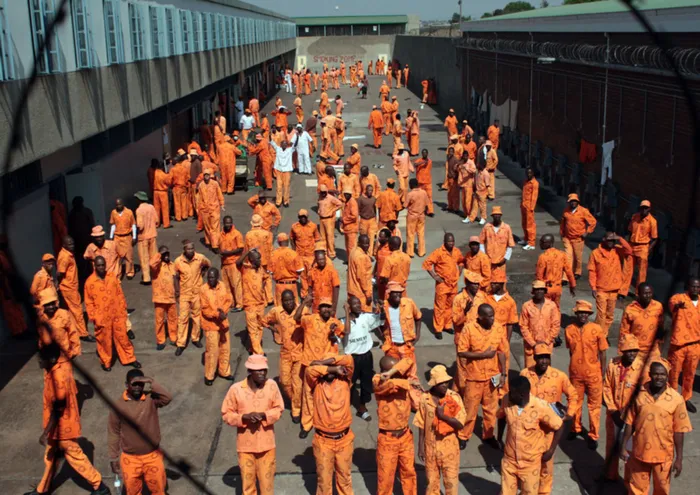Fears over prisoner release

298 10.09.10 Inmates busk in the sun at Leeukop maximum Prison. Children from various schools in Johannesburg toured the facilities as part of the Gauteng Province corrections week. Picture: Believe Nyakudjara 298 10.09.10 Inmates busk in the sun at Leeukop maximum Prison. Children from various schools in Johannesburg toured the facilities as part of the Gauteng Province corrections week. Picture: Believe Nyakudjara
Experts have expressed unease over whether the Department of Correctional Services will be able to properly manage the early release of thousands of prisoners to benefit from the remission of sentences announced by President Jacob Zuma on Freedom Day.
The DA also says lessons have not been learnt from the flaws that marred a similar process seven years ago.
In May 2005, then president Thabo Mbeki authorised the early release of more than 65 000 prisoners over a 10-week period. Even before the process was completed, 157 offenders were back behind bars facing fresh charges for crimes that included murder, rape, robbery and theft – all committed within days of their release.
Zuma’s announcement that an estimated 35 000 prisoners, parolees and probationers would benefit from another round of remissions – to mark SA’s 18th Freedom Day – has prompted warnings that the lessons of 2005 were being ignored.
A correctional services department report presented to Parliament in August 2005 said the crimes committed by prisoners granted early release included eight cases of rape, three of murder, 13 robberies, 33 incidents of theft and 58 cases of housebreaking.
In one instance, an offender was back behind bars on the day of his early release after committing a crime within 30 minutes of leaving prison. Notably, the report took account only of those cases reported during the 10-week remission process.
DA MP and the party’s correctional services spokesman, James Selfe, warned on Tuesday the blanket remission of sentences by presidential proclamation did not allow for each offender’s circumstances, or state of rehabilitation, to be considered on a case-by-case basis.
“We believe that the premature release of un-rehabilitated prisoners is a danger to the public. Prisoners should be properly rehabilitated before they are allowed to walk the streets again. If they are not, they are likely to reoffend and end up back in jail, defeating the purpose of the special remission, which is to alleviate prison overcrowding.”
The 2005 report suggested that prison authorities had not done proper checks on those who were being released, Selfe said.
“At the time, the department said it would be much more careful about who would be released in future, but it is clear to me that this is not going to happen. The fear we have is that in six to eight weeks the committee is going to hear another report from the department that will be identical to the 2005 report – that people were released who should not have been released,” he added.
But the department has defended the latest process – due to begin on May 14 – and gave the assurance that lessons from 2005 have indeed been learnt.
Zac Modise, deputy director-general for correctional Services, told The Star on Tuesday that “mechanisms” were in place to ensure public safety and to provide released inmates with a “soft landing back into society”.
Prison reform specialist Lukas Muntingh, from the Civil Society Prisons Reform Initiative, has warned that the department lacks the staff and budget to offer proper post-release support services. - Political Bureau